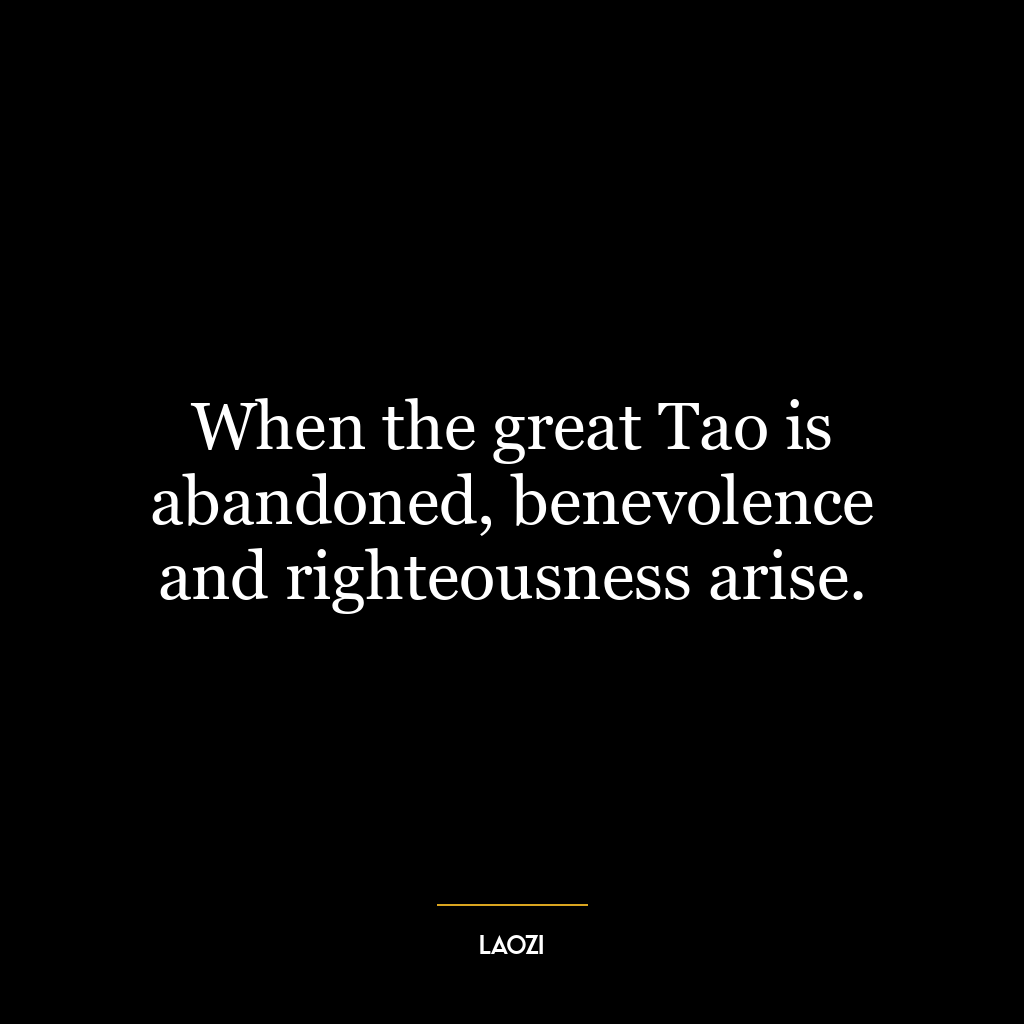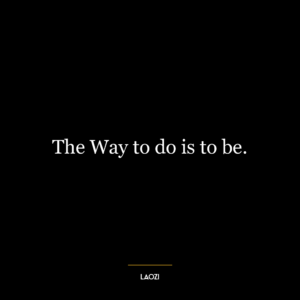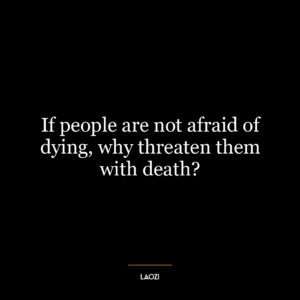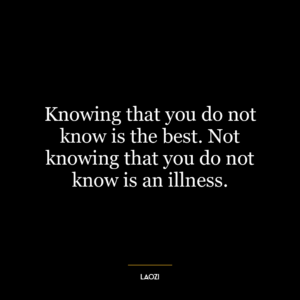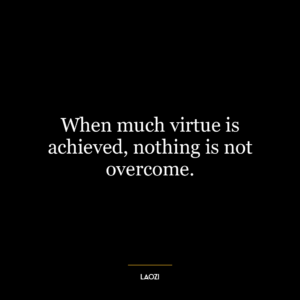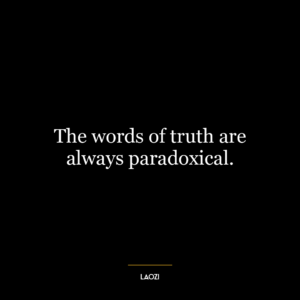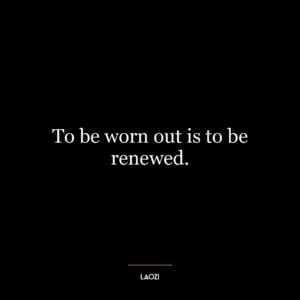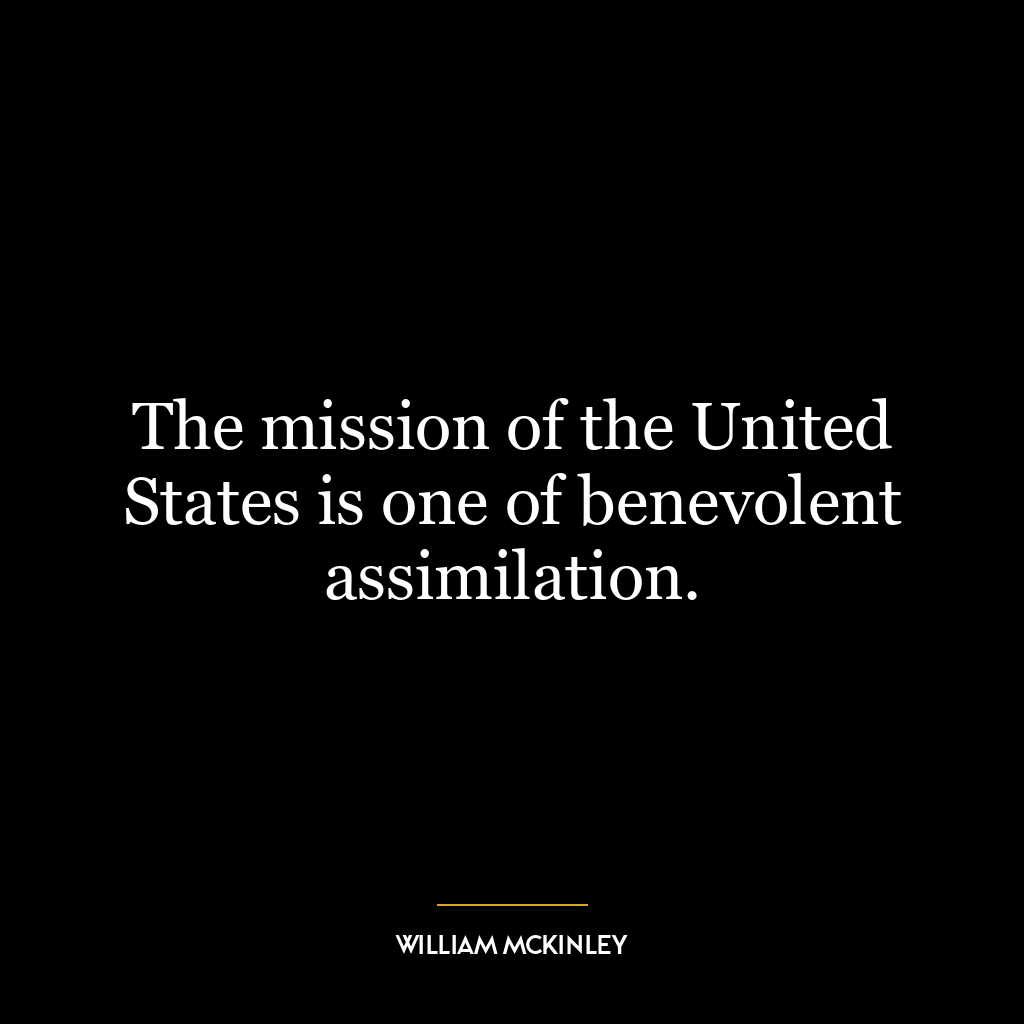When the great Tao is abandoned, benevolence and righteousness arise.
This quote implies that when we lose connection with the natural flow of life (the Tao), we start to rely on concepts such as benevolence and righteousness. The Tao, in Taoist philosophy, is the underlying natural order of the universe. It’s a state of effortless flow, harmony, and balance. It’s the way things naturally are, without any human intervention or force.
When we abandon the Tao, we lose touch with this natural state of being. We start to depend on human constructs like benevolence (kindness) and righteousness (moral correctness) to guide our actions and behaviors. These constructs, though valuable, are not inherent to the natural world; they are human-made and can therefore be flawed or limiting.
In essence, the quote suggests that the purest form of existence is found not through striving to be kind or morally correct, but through aligning ourselves with the natural flow of life. This doesn’t mean that benevolence and righteousness are bad, but rather that they emerge as compensations when we lose touch with our inherent connection to the natural world.
In today’s world, this idea can be applied in various ways. For instance, in personal development, it suggests that instead of trying to force ourselves to be “good” or “right”, we should strive to be in tune with our authentic selves and the world around us. It’s about being true to who we are, rather than conforming to societal expectations or norms.
In a broader societal context, the quote could be seen as a critique of our reliance on rules and regulations to maintain order. While these are necessary to a certain extent, an over-reliance on them may indicate a disconnection from the Tao, from the natural harmony of life. Instead, we could benefit from fostering a deeper understanding and respect for the natural world and its inherent balance.

